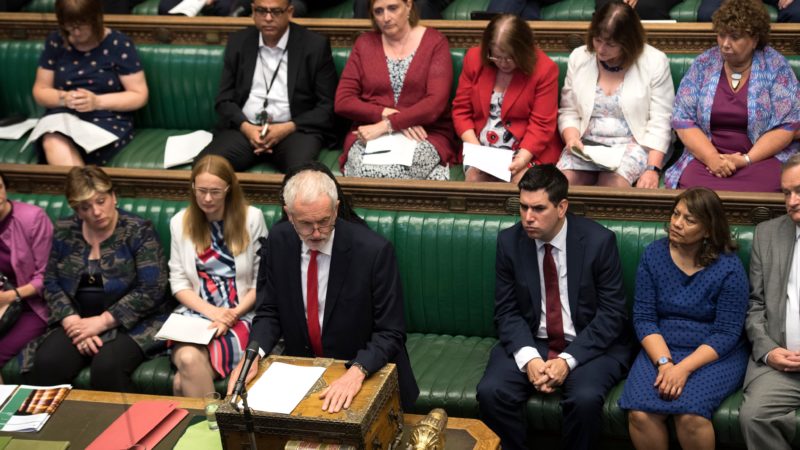
Jo Swinson was elected as the new leader of the Liberal Democrats yesterday. Although there is a possibility that she could hold the key to No10 for Jeremy Corbyn via a confidence-and-supply deal after the next election, discussion around her leadership contest victory centred on whether it was right for Labour to criticise a rival party. An odd response. But all eyes are now on the other leadership race. Shortly before midday, everyone expects to see Boris Johnson confirmed as the new Conservative Party leader and thus the next Prime Minister.
Ministerial resignations and appointments will dominate the news today. Who will be the chief whip? Does Sajid Javid have the best chance of succeeding Philip Hammond as Chancellor, or will Johnson go for the riskier but loyal Liz Truss? And so on. The gush of announcements will be exciting for journalists. We can only hope that some air time/column inches are saved for the scariest part of this story: the lazy and reckless character of the man entering Downing Street.
Meanwhile, Labour is focussed on changing the way it deals with disciplinary cases. National executive committee (NEC) members will be presented with a number of options for reform. Tom Watson’s motion, revealed last week, calls for an independent process and automatic exclusion where there is “irrefutable evidence”. Jeremy Corbyn will be coming to the meeting equipped with two options, his own preference and a supportive statement from the shadow cabinet. (Read the full text here, plus the new complaint statistics revealed by Jennie Formby.)
Option 1: NEC panels would be given the power to expel members in “the most serious of cases”. They would not choose only between a formal warning and referring the case upwards to Labour’s highest disciplinary body (the NCC), but could take the toughest action themselves. Option 2: Such cases would be referred to a “special panel” with the general secretary and NEC officers on it, rather than the normal NEC panels. This is the option favoured by Corbyn. The shadow cabinet has approved it too, though added that they want “independent oversight of our processes”. It is not yet clear what this would mean in practice.
Could this reform settle the issue? Not according to the Jewish Labour Movement, nor to many Labour MPs. There are two issues that people have identified with the current system: the quality of the decisions made, and the pace. Critics argue that Corbyn’s option addresses the latter (the NCC is the part that can take years, so cutting it out in “prima facie” cases would undoubtedly shorten the process). But they say it would make the former problem worse because it actually politicises the procedures further. Putting the leader’s allies in charge of the worst cases is the opposite of introducing an independent process, Labour MPs have pointed out.
“This was just to get us through recess,” Ruth Smeeth said of Option 2 last night. But the leadership is adamant that “outsourcing” the process would leave the party vulnerable to legal challenge. The question today is whether NEC members prioritise speed or taking the disciplinary process out of the leadership’s control and outside of its sphere of influence entirely.
Sign up to LabourList’s morning email for everything Labour, every weekday morning.


More from LabourList
Key local council elections to watch for clues on our general election chances
Andy Burnham manifesto: Greater Manchester mayor reveals three key election pledges in bid for third term
‘Labour should grasp the chance to secure EU visa deal for young workers’